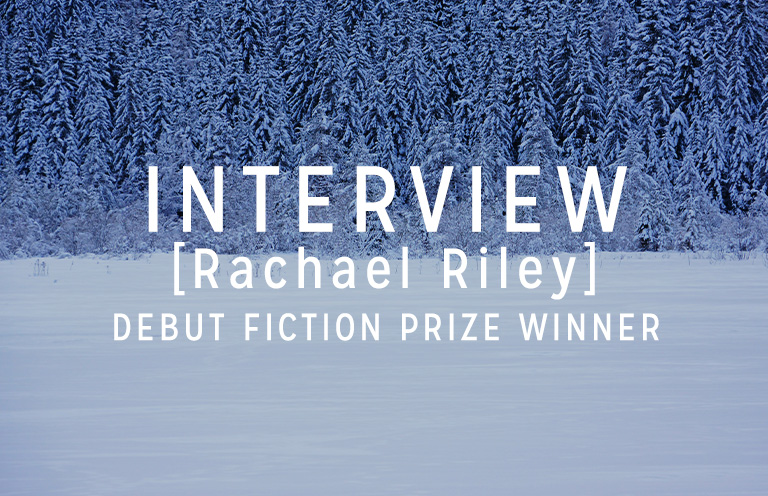Rachael Riley’s “Sightline” won third place in our Debut Fiction Prize. Read the story here, then check out this interview in which Riley talks about the power of nature, the conflicts inherent in small spaces, and what they’re working on next.

This is a story about isolation—physical, but also emotional, familial. I want to home in first on the physical, the role that place plays in this story. This is harsh landscape. Cold, difficult to navigate, difficult to even communicate from with the lack of (or poor) cell signal. Our narrator finds comfort in the cries of coyotes. They even wish the cabin is not considered part of civilization. They’re yearning for this distance from everything, to be out in the wild, almost. What does this place mean for you? It’s depicted with such care and precision, I imagine there’s some personal experience or connection coming through.
The landscape described is one that brought me a lot of peace after immigrating to Canada. Being from Aotearoa (New Zealand), I wasn’t ready for the all-encompassing nature of winter here. -40 Celsius, little sunlight, the fact you couldn’t open a window between October and April. I struggled a lot. Only when I was able to get out in the cold and snow and ice in a lake district very similar to the one described, could I appreciate what the extremes of the season brought. It reminded me how stupid powerful nature is—something I strongly connect with, having grown up in a place that is surrounded by ocean.
Since writing this piece, my partner and I have started building a cabin on the island which inspired this story. I’m sure it will have plenty of crooked coat-hooks.
Turning to familial relations, then: though our narrator feels as though their father neglected them or didn’t take their work seriously (or even bothered to read their books), they still feel some nostalgia in this cabin. The line I keep coming back to is: “It had been years since my hand had found the light switch but a body doesn’t easily forget its way.” They’re here to escape grief, or maybe to confront it. The cabin evokes some positive memories of growing up, but it’s their sister, who is the reason they all stopped coming to the cabin every weekend, who disrupts the comfort they’re finding in the cabin, in isolation. There’s something so universal about sibling rivalries, isn’t there? Talk a little about your decision to stage this confrontation at the cabin.
There is something about the shared history of place that muddles time. Without the cabin, the sister and the narrator wouldn’t have had this type of confrontation. As they’d grown, they had become different people with different ways of navigating (or not navigating) conflict. Only when brought together in the cabin, where the previous versions of themselves were harder to shrug off, could they break their current patterns.
On a craft level, I love the textures that the cabin provides. Because it is so small and contained, every object in the space has to have a purpose. I can walk through the rooms in my mind and let things jump out at me—the paperback with the folded spine, the yellow cup. Those things tell me the story.
And always, there are the coyotes. I’m curious if you wrote your way into this ending with the coyotes, or if this was the plan all along?
There was always an ending with the coyotes, but there wasn’t always this ending. I definitely wrote myself into it! There were many, many edits before I knew the full shape of this story.
What are you working on now?
There are a few things on my desk. I just finished a manuscript called “All Right?” which is centered around the earthquakes in my hometown of Ōtautahi (Christchurch). It’s a hybrid form long poem which will hopefully be making its way into the world soon.
Interviewed by Cole Meyer
